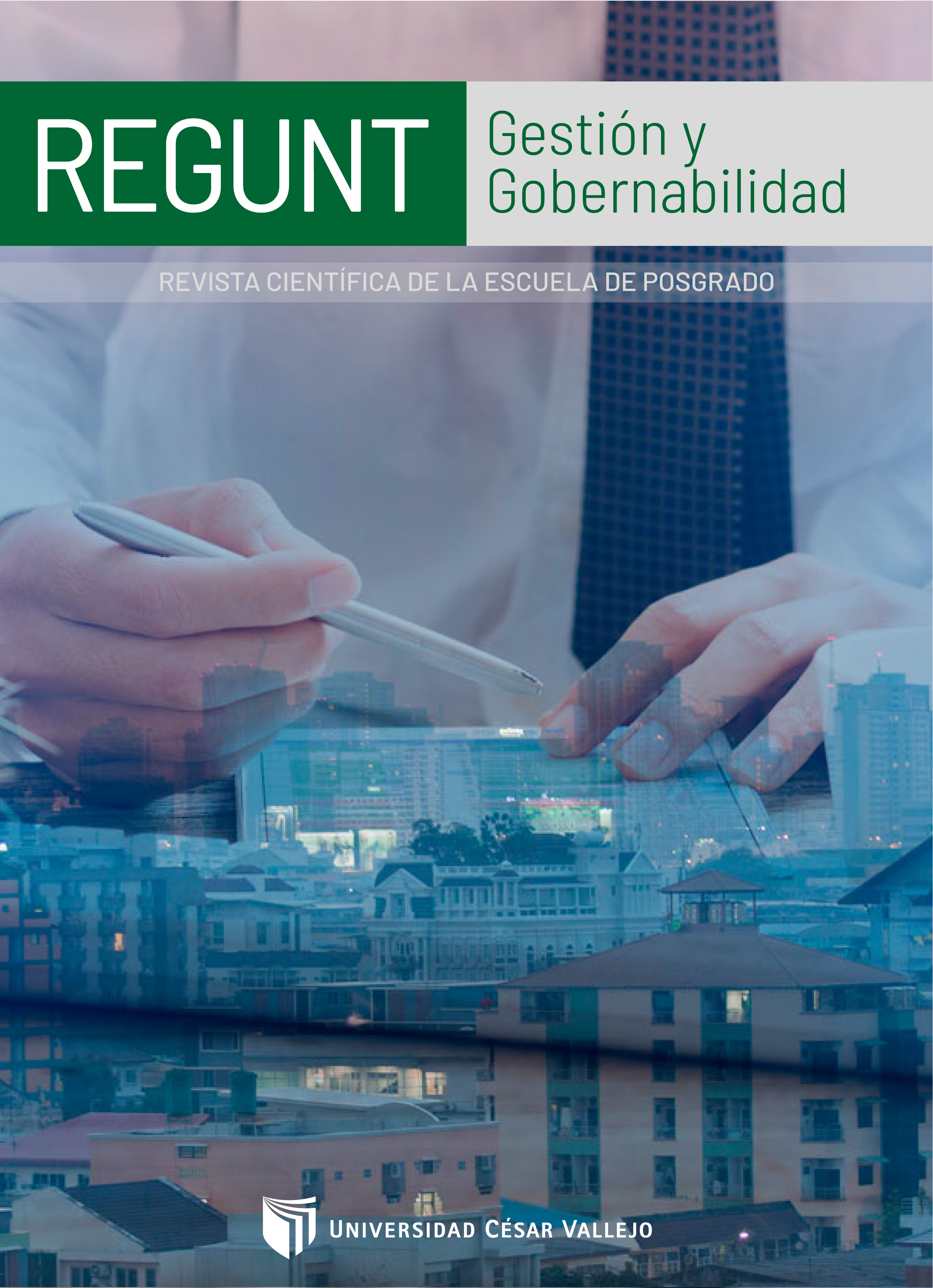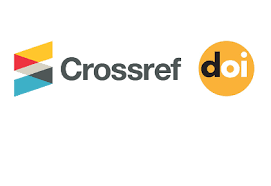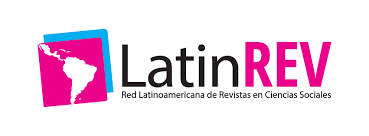Saberes previos, mediación pedagógica y aprendizaje en la gestión de la educación universitaria
DOI:
https://doi.org/10.18050/regunt.v2i1.02Palabras clave:
saberes previos, enseñanza, aprendizajeResumen
La educación universitaria corresponde al nivel terciario y está orientada a la formación de profesionales competentes con dominio de las habilidades duras de la especialidad y habilidades blandas para el éxito en su desempeño profesional. Durante el proceso de profesionalización, deben aprovecharse todas las experiencias que trae y que gravitaron para la elección de la carrera. Por ello, el aprendizaje en la buena práctica de la gestión universitaria requiere saberes previos y mediación del docente; sin embargo, existe una tendencia a promover enseñanzas con escasa guía pedagógica debido a orientaciones constructivistas sobre la autonomía del estudiante y existen pocos estudios que muestran los resultados de tales prácticas educativas. La presente investigación tiene como objetivo demostrar que los niveles de mediación pedagógica tienen efecto diferente en los resultados de aprendizaje según los niveles de saberes previos. El diseño de investigación es cuasi experimental, con una muestra de veintiséis estudiantes universitarios de grupo intacto, a partir del cual se formaron los grupos experimental y control con asignación aleatoria. A ambos grupos se les midió el nivel de saberes previos antes del experimento; luego, solo al grupo experimental se proporcionó alta mediación pedagógica y el grupo de control actuó como testigo. Los resultados muestran que los estudiantes con bajos saberes previos se perjudican con escasos niveles de mediación; mientras que, en los estudiantes con altos saberes previos, los niveles de mediación no tienen efecto significativo.
Descargas
Referencias
Abadzi, H. y Silva, M. (2007). Aprendizaje eficaz y pobreza: Ideas desde las fronteras de la neurociencia cognitiva. Banco Mundial; Universidad Católica Silva Henríquez.
Ashman, G., Kalyuga, S. y Sweller, J. (2020). Problem-solving or Explicit Instruction: Which Should Go First When Element Interactivity Is High? Educational Psychology Review, 32(1), 229–247. https://doi.org/10.1007/s10648-019-09500-5
Ausubel, D. P. (2002). Adquisición y retención del conocimiento: Una perspectiva cognitiva. Paidós Ibérica.
Ausubel, D. P., Novak, J. D. y Hanesian, H. (1983). Psicología educativa: Un punto de vista cognoscitivo. Trillas.
Berkhout, J. J., Helmich, E., Teunissen, P. W., van der Vleuten, C. P. M. y Jaarsma, A. D. C. (2017). How clinical medical students perceive others to influence their self-regulated learning. Medical Education, 51(3), 269–279. https://doi.org/10.1111/medu.13131
Biggs, J. (2004). Calidad del Aprendizaje Universitario. Narcea.
Blikstein, P., Gomes, J. S., Akiba, H. T. y Schneider, B. (2017). The Effect of Highly Scaffolded Versus General Instruction on Students’ Exploratory Behavior and Arousal. Technology, Knowledge and Learning, 22(1), 105–128. https://doi.org/10.1007/s10758-016-9291-y
De Zubiría Samper, J. (2003). De la escuela nueva al constructivismo: Un análisis crítico. COOPERATIVA EDITORIAL MAGISTERIO.
Delgado, A. (2013). Pedagogical Mediation and Learning. Revista De Lenguas Modernas (19), 513–522. https://revistas.ucr.ac.cr/index.php/rlm/article/view/14033
Dong, A., Jong, M. S.‑Y. y King, R. B. (2020). How Does Prior Knowledge Influence Learning Engagement? The Mediating Roles of Cognitive Load and Help-Seeking. Frontiers in Psychology, 11, 591203. https://doi.org/10.3389/fpsyg.2020.591203
Enkvist, I. (2012). La Buena y la Mala Educacion: Ejemplos Internacionales. Ediciones Encuentro.
Hattie, J. (2018). El sí y el no de las estrategias de enseñanza. Trillas.
Hirsch Jr, E. D. (1997). Crítica a una Cosmovisión. Estudios Públicos, 68.
Kalyuga, S. (2009). The Expertise Reversal Effect. En S. Kalyuga (Ed.). Managing cognitive load in adaptive multimedia learning (pp. 58–80). Information Science Reference. https://doi.org/10.4018/978-1-60566-048-6.ch003
Kapici, H. O., Akcay, H. y Cakir, H. (2022). Investigating the effects of different levels of guidance in inquiry-based hands-on and virtual science laboratories. International Journal of Science Education, 44(2), 324–345. https://doi.org/10.1080/09500693.2022.2028926
Kirschner, P. A., Sweller, J. y Clark, R. E. (2006). Why Minimal Guidance During Instruction Does Not Work: An Analysis of the Failure of Constructivist, Discovery, Problem-Based, Experiential, and Inquiry-Based Teaching. Educational Psychologist, 41(2), 75-86. https://doi.org/10.1207/s15326985ep4102_1
Kirschner, P. A. y van Merriënboer, J. J. (2013). Do Learners Really Know Best? Urban Legends in Education. Educational Psychologist, 48(3), 169-183. https://doi.org/10.1080/00461520.2013.804395
Kozulin, A. (2000). Instrumentos psicológicos: La educación desde una perspectiva sociocultural. Paidós Ibérica.
Kuang, X., Eysink, T. H. y Jong, T. (2020). Effects of providing partial hypotheses as a support for simulation-based inquiry learning. Journal of Computer Assisted Learning, 36(4), 487-501. https://doi.org/10.1111/jcal.12415
Leahy, W. y Sweller, J. (2005). Interactions among the imagination, expertise reversal, and element interactivity effects. Journal of Experimental Psychology. Applied, 11(4), 266-276. https://doi.org/10.1037/1076-898X.11.4.266
Mayer, R. E. (2004). Should there be a three-strikes rule against pure discovery learning? The case for guided methods of instruction. The American Psychologist, 59(1), 14-19. https://doi.org/10.1037/0003-066X.59.1.14
Pozo, J. I. y Mateos, M. (2009). Aprender a aprender: Hacia una gestión autónoma y metacognitiva del aprendizaje. En J. I. Pozo y M. Pérez Echeverría (Eds.), Psicología del aprendizaje universitario: La formación en competencias (pp. 54-69). Morata.
Ravitch, D. (2001). La era de los expertos y los años sesenta. Estudios Publicos (84), 205-300. https://www.cepchile.cl/la-era-de-los-expertos-y-los-anos-sesenta/cep/2016-03-04/092834.html
Roll, I., Butler, D., Yee, N., Welsh, A., Perez, S., Briseno, A., Perkins, K. y Bonn, D. (2018). Understanding the impact of guiding inquiry: the relationship between directive support, student attributes, and transfer of knowledge, attitudes, and behaviours in inquiry learning. Instructional Science, 46(1), 77-104. https://doi.org/10.1007/s11251-017-9437-x
Ruíz Bravo, P., Rosales, J. L. y Neira Riquelme, E. (2006). Educación y cultura: la importancia de los saberes previos en los procesos de enseñanza-aprendizaje. Lima: Grade group for the analysis of Development. https://www.ssoar.info/ssoar/handle/document/51513
Slafer, G. A. (2009). ¿Cómo escribir un artículo científico? Revista De Investigación En Educación, 6, 124-132. https://reined.webs.uvigo.es/index.php/reined/article/view/59
Solórzano-Mendoza, Y. D. (2017). Aprendizaje autónomo y competencias. Dominio de las Ciencias, 3(1), 241-253. https://dominiodelasciencias.com/ojs/index.php/es/article/view/390/pdf
Sweller, J., van Merrienboer, J. J. G. y Paas, F. G. W. C. (1998). Cognitive Architecture and Instructional Design. Educational Psychology Review, 10(3), 251-296. https://doi.org/10.1023/A:1022193728205
van Riesen, S., Gijlers, H., Anjewierden, A. y Jong, T. de (2018a). The influence of prior knowledge on experiment design guidance in a science inquiry context. International Journal of Science Education, 40(11), 1327-1344. https://doi.org/10.1080/09500693.2018.1477263
van Riesen, S., Gijlers, H., Anjewierden, A. y Jong, T. de (2018b). Supporting learners’ experiment design. Educational Technology Research and Development, 66(2), 475-491. https://doi.org/10.1007/s11423-017-9568-4
van Riesen, S., Gijlers, H., Anjewierden, A. A. y Jong, T. de (2022). The influence of prior knowledge on the effectiveness of guided experiment design. Interactive Learning Environments, 30(1), 17-33. https://doi.org/10.1080/10494820.2019.1631193
Vygotski, L. S. (2000). El desarrollo de los procesos psicológicos superiores (1.ª ed. en Biblioteca de bolsillo). Biblioteca de bolsillo: Vol. 27. Crítica.
Xhomara, N. (2020). How prior knowledge, learning, teaching and assessment affect students’ achievements in Mathematics. Research in Education and Learning Innovation Archives (25), 68. https://doi.org/10.7203/realia.25.15780
Zayac, R. M. y Lenhard, W. (2018). Characteristics of Master Teachers: German University Students’ Perceptions of High-Quality Instruction. New Directions for Teaching and Learning, 2018(156), 67-74. https://doi.org/10.1002/tl.20318
Zheng, B., Lin, C.‑H. y Bae Kwon, J. (2020). The impact of learner-, instructor-, and course-level factors on online learning. Computers & Education, 150, 103851. https://doi.org/10.1016/j.compedu.2020.103851
Descargas
Publicado
Número
Sección
Licencia

Esta obra está bajo una licencia internacional Creative Commons Atribución-NoComercial 4.0.
La Revista Regunt usa la licencia Creative Commons de Atribución; pudiendo:
Compartir — copiar y redistribuir el material en cualquier medio o formato
Adaptar — remezclar, transformar y crear a partir del material
para cualquier finalidad, incluso comercial.










